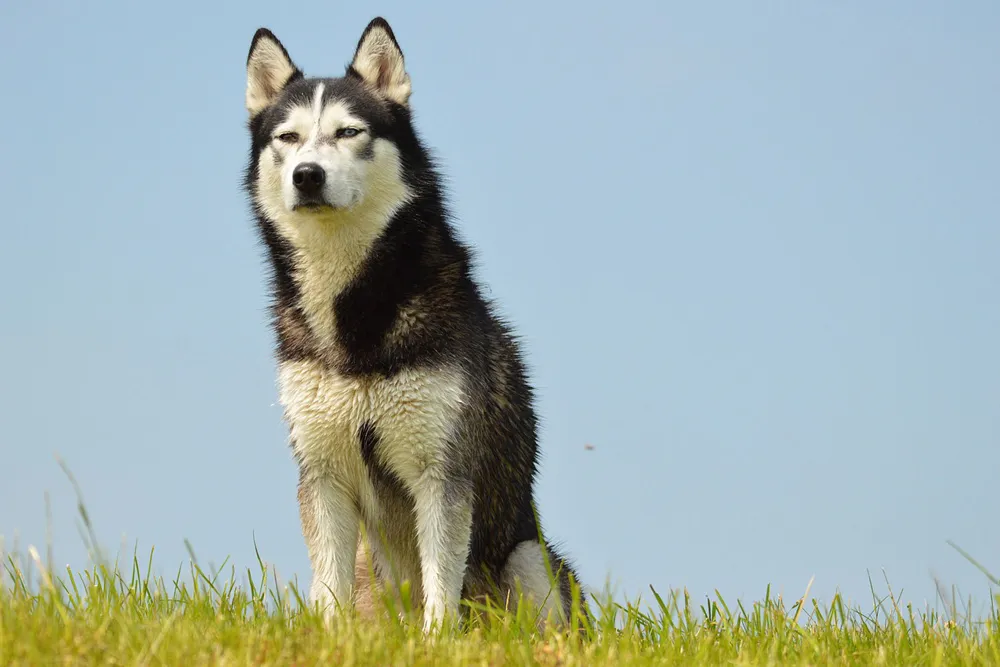 Majestic Siberian Husky enjoying the outdoors, symbolizing a happy dog free from fleas and ticks with the best prevention.
Majestic Siberian Husky enjoying the outdoors, symbolizing a happy dog free from fleas and ticks with the best prevention.
Discovering a flea or tick on your beloved Siberian Husky can be a distressing experience for any pet parent. Beyond the obvious discomfort and incessant itching these pests inflict, fleas and ticks pose significant health risks, acting as vectors for dangerous parasites and diseases that can severely compromise your husky’s well-being. Ensuring your husky receives the best flea and tick treatment isn’t just about comfort; it’s a critical component of their overall health care. This comprehensive guide will explore effective strategies for naturally preventing fleas and ticks from bothering your husky, examining the advantages and disadvantages of natural methods versus traditional chemical pesticides. Our goal is to equip you with the knowledge to make informed decisions for your husky’s health and happiness.
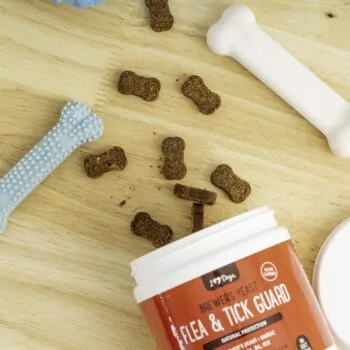 iHeartDogs Flea & Tick Guard natural defense chews for huskies, showcasing a safe option for internal flea and tick treatment.
iHeartDogs Flea & Tick Guard natural defense chews for huskies, showcasing a safe option for internal flea and tick treatment.
Why Husky Parents Seek Safer Flea & Tick Control Methods
A growing number of pet owners, particularly those with active and beloved breeds like Huskies, are expressing significant concerns about the routine use of pesticide and chemical-based insect repellents. These concerns are not unfounded; in August of 2021, the FDA issued a renewed warning to dog and cat owners regarding potential adverse effects associated with chemical flea repellents, including severe neurological issues such as seizures, muscle tremors, and ataxia (a lack of coordination and balance). While the FDA maintains that the majority of pets on these medications do not exhibit side effects, a substantial community of pet parents, including members of large online groups like this 40,000+ member community on Facebook, report witnessing adverse reactions, leading them to seek alternative, natural treatments.
Beyond the immediate safety concerns, chemical-based pesticides present another inherent challenge: the development of pest resistance. Fleas and ticks can evolve over time, becoming immune to the effects of certain chemicals. This biological adaptation often necessitates pet owners to constantly rotate traditional flea control brands to maintain effectiveness, an ongoing battle that can be both frustrating and costly.
It’s important to acknowledge that chemical-based pesticides can be highly effective for many dogs and may offer superior protection against severe infestations compared to natural methods. Ultimately, the decision of which treatment path to pursue for your husky should be a collaborative one, made in consultation with your veterinarian. Even if you choose to use traditional pesticide-based flea control products, integrating natural flea and tick repellents can significantly boost their efficacy and provide an added layer of protection for your husky, making them a worthwhile consideration for a holistic approach to pest management.
Understanding Your Husky’s Unique Needs for Flea & Tick Prevention
Huskies, with their distinctive thick double coats and energetic, outdoor-loving dispositions, have specific considerations when it comes to choosing the best flea and tick treatment. Their dense fur can make it challenging to spot tiny pests, allowing infestations to become severe before detection. Furthermore, their active lifestyles, often involving treks through wooded areas or tall grass, expose them to a higher risk of encountering fleas and ticks.
When considering treatment options for your husky, think about:
- Coat Penetration: Treatments need to effectively reach the skin through their thick fur.
- Skin Sensitivity: Some huskies may have sensitive skin, reacting poorly to harsh chemicals.
- Activity Level: A treatment that remains effective despite frequent outdoor adventures is crucial.
- Long-Term Health: Prioritizing solutions that support their overall health without potential long-term side effects is key.
This breed-specific understanding helps tailor prevention methods, ensuring your husky remains comfortable and protected without unnecessary risks.
A 4-Step Comprehensive Strategy for Natural Flea & Tick Prevention for Your Husky
Adopting a natural flea and tick prevention regimen for your husky can be highly effective, provided you commit diligently to a multi-faceted approach. This four-step strategy focuses on creating an inhospitable environment for pests, both on and around your dog.
1. Bolster Your Husky’s Defenses from Within
Protecting your husky from the inside out is a cornerstone of natural flea and tick prevention. By incorporating specific nutritional supplements, you can alter your husky’s body chemistry to make them less appealing to pests. A popular and effective option is a brewer’s yeast and garlic supplement. These natural ingredients, when metabolized by your husky, can create an odor that, while undetectable to humans and dogs, is highly repulsive to fleas and ticks. Most huskies readily accept these supplements, often mistaking the tasty chews for treats. This internal defense mechanism makes your husky’s blood less appetizing, significantly reducing their susceptibility to bites.
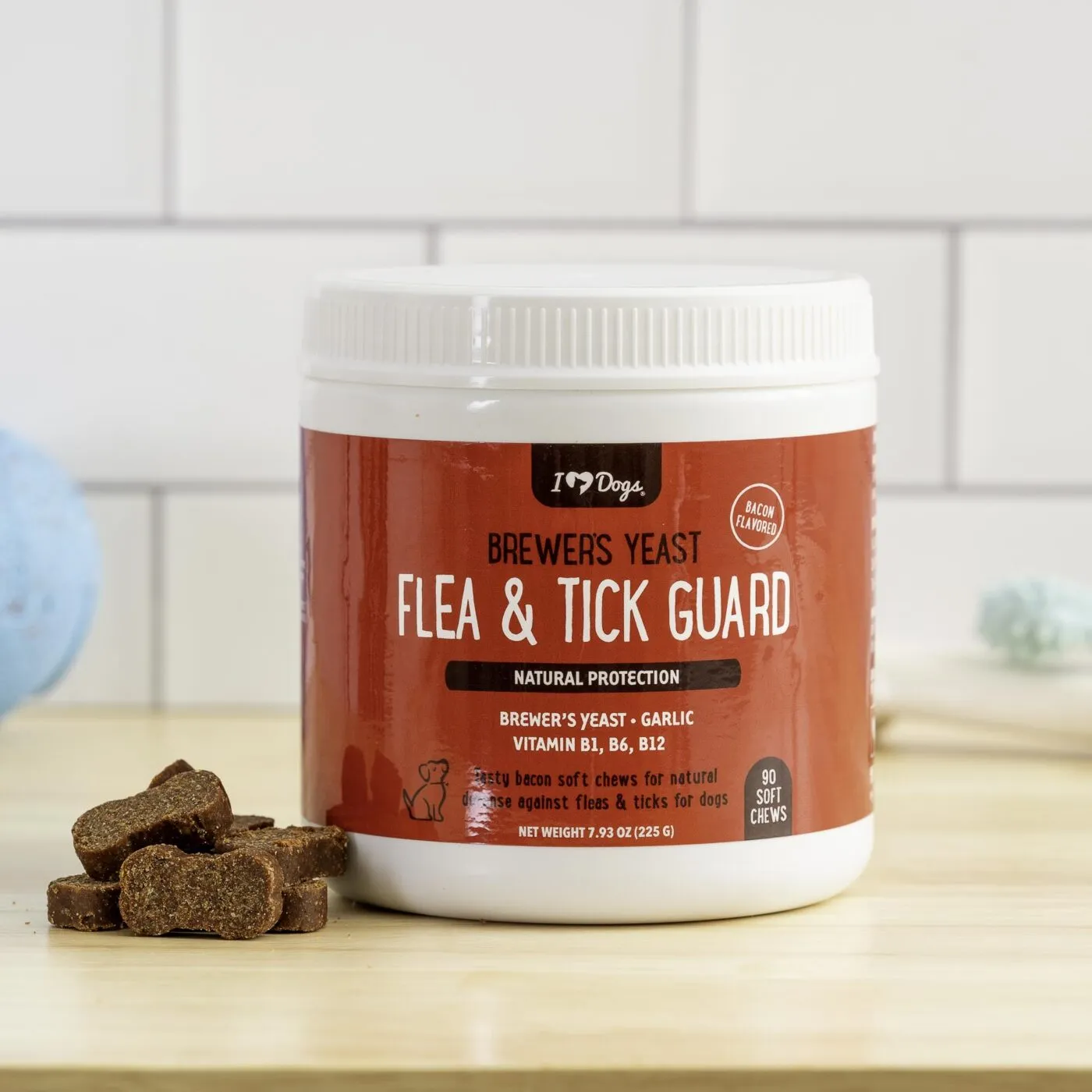 Close-up of iHeartDogs natural flea and tick guard chews, highlighting internal protection for your husky's wellness.[internal_links]
Close-up of iHeartDogs natural flea and tick guard chews, highlighting internal protection for your husky's wellness.[internal_links]
2. External Protection: Safeguarding Your Husky’s Coat and Bedding
Complementing internal defenses, external applications are crucial for immediate protection. Natural, pet-safe essential oil sprays offer an excellent solution. These sprays, often available on Amazon and in specialty pet stores, contain a blend of essential oils known for their insect-repelling properties. Applying these directly to your husky’s fur and to their bedding creates a protective barrier, deterring fleas and ticks from latching on or settling in their resting areas. Some formulations go a step further, incorporating plant-based compounds that not only repel but also kill existing fleas and their eggs, providing dual action defense for your husky.
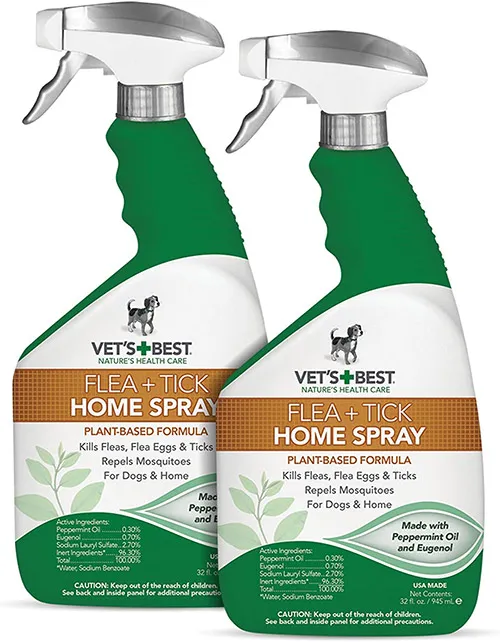 Collection of natural pet-safe essential oil sprays, effective external flea and tick treatment options for husky fur and bedding.
Collection of natural pet-safe essential oil sprays, effective external flea and tick treatment options for husky fur and bedding.
3. Environmental Control: Don’t Forget Your Home and Yard
A truly comprehensive flea and tick prevention program for your husky must extend beyond the dog itself to encompass their living environment. Even if you successfully rid your husky of pests, re-infestation is inevitable if flea eggs or larvae persist in your home or yard. Our top recommendation for natural pest control in these areas is using diatomaceous earth (DE), readily available on Amazon or at most hardware stores. Unlike chemical pesticides that rely on toxins, DE works mechanically; its microscopic, sharp edges dehydrate and kill pests upon contact, yet it is completely harmless to pets and humans. Another effective option for yard treatment is a natural yard spray, with Wondercide being a popular brand. These products utilize similar essential oil-based principles as pet sprays to create a pest-free zone around your home.
[internal_links]
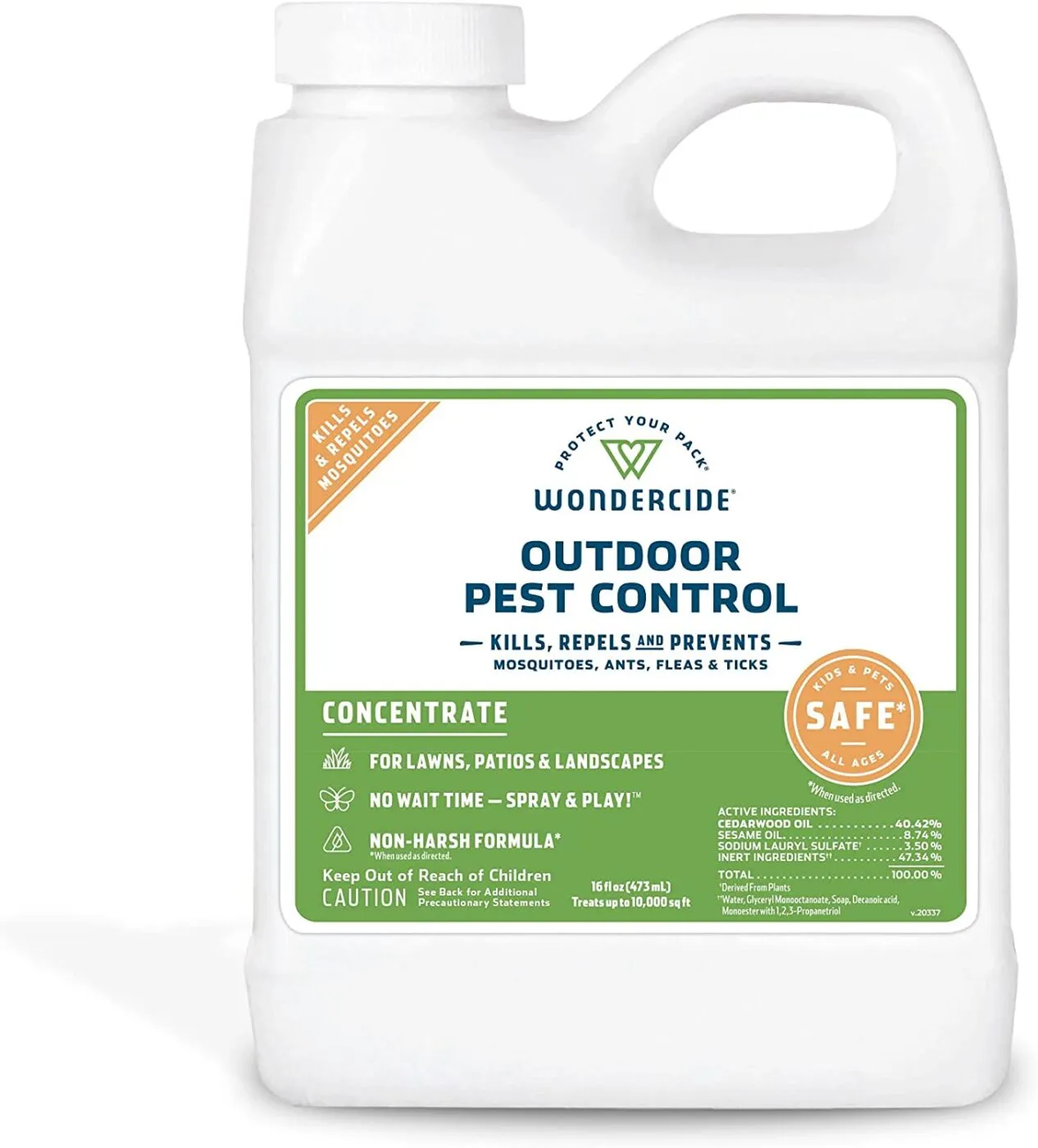 Natural yard treatment spray for flea and tick control, vital for environmental protection as part of a comprehensive husky care strategy.
Natural yard treatment spray for flea and tick control, vital for environmental protection as part of a comprehensive husky care strategy.
4. Daily Vigilance: Regular Checks and Grooming
During warmer months, or if your husky spends a significant amount of time outdoors, daily inspections are non-negotiable. Thoroughly check your husky for fleas and ticks. A common indicator of fleas is “flea dirt” – the waste products left behind in your dog’s fur, which looks like small black specks. A flea comb is an indispensable, simple tool that can help you discover these tiny pests and flea dirt, especially in your husky’s dense undercoat. Regular grooming not only helps in early detection but also distributes natural oils that can naturally deter pests. It’s crucial to remember that if your husky is already burdened with a significant flea infestation, the priority is to eliminate the existing pests before a preventative natural strategy can be fully effective.
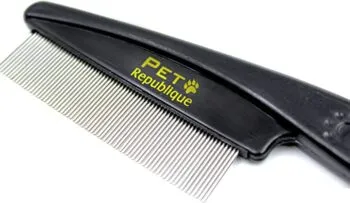 Metal flea comb for daily inspection, an essential tool for detecting and removing fleas and ticks from a husky's dense coat.[internal_links]
Metal flea comb for daily inspection, an essential tool for detecting and removing fleas and ticks from a husky's dense coat.[internal_links]
Exploring iHeartDogs Flea & Tick Guard Chews: A Natural Ally
For husky owners seeking a convenient and effective natural preventative, the new iHeartDogs Flea & Tick Guard Bones offer an excellent solution. These palatable chews leverage a small, safe amount of garlic combined with brewer’s yeast to make your husky’s scent unappealing to fleas and ticks. When administered daily, this unique blend creates an internal defense system that repels pests, ensuring they stay away without emitting any detectable odor to humans or your dog.
Beyond pest control, each chewable tablet is a powerhouse of nutrition, providing an excellent source of protein, essential trace minerals, and a full spectrum of B-complex vitamins. These nutrients are vital for promoting healthy skin and a lustrous coat (particularly beneficial for huskies’ double coats), maintaining normal cellular growth and function, boosting immune support, and enhancing overall health. Even the most discerning huskies typically find these chews delicious. At approximately $29.99 for a bottle containing 90 tasty chews, the daily investment is around 66 cents for an average-sized dog, offering an affordable and natural approach to their protection. True to the iHeartDogs mission, every purchase also contributes healthy meals to shelter dogs, allowing your purchase to make a positive impact beyond your own pet.
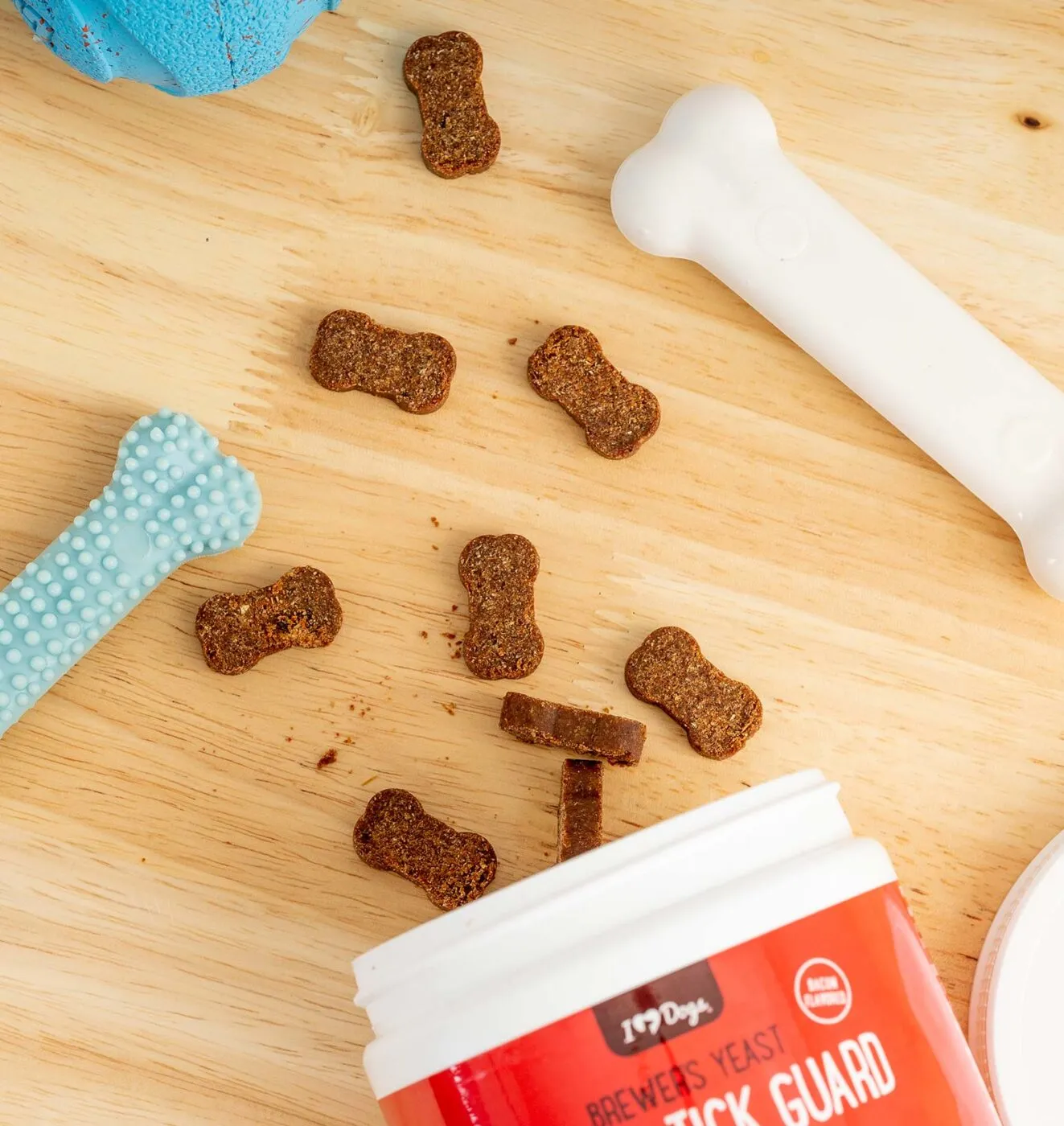 Packaging of iHeartDogs Flea & Tick Guard Bones, emphasizing a natural and effective flea treatment for huskies.[internal_links]
Packaging of iHeartDogs Flea & Tick Guard Bones, emphasizing a natural and effective flea treatment for huskies.[internal_links]
Important Considerations: Natural vs. Traditional Treatments for Huskies
The debate between natural and traditional, pesticide-based flea and tick treatments is ongoing, with valid points on both sides. When considering the best flea and tick treatment for your husky, it’s essential to weigh these factors carefully and consult with your veterinarian.
While natural methods are generally considered less prone to severe side effects, their efficacy can sometimes be lower, especially in cases of heavy infestation or high exposure. They also often require a more diligent and consistent multi-pronged approach. Conversely, pesticide-based products are often highly effective and convenient to administer, but they carry potential risks of adverse reactions. The choice between these two approaches, or a combination thereof, depends heavily on your husky’s individual health, lifestyle, your local pest prevalence, and your personal comfort level with potential side effects versus efficacy.
Frequently Asked Questions About Flea & Tick Treatment for Huskies
What’s better for my husky, natural or traditional pesticide-based flea & tick products?
Ultimately, this is a highly personalized decision that you should make in collaboration with your veterinarian. From our perspective at Dog Care Story, natural methods are typically associated with fewer dangerous side effects, though they may demand more consistent application and vigilance. Traditional pesticide-based products often offer greater ease of administration and high effectiveness for many dogs. However, their potential for adverse reactions, some of which appear to be increasing, is a significant concern for many pet parents.
What are the most common side effects of flea & tick medications for huskies?
According to the FDA, the most frequently reported side effects for Isoxazoline-class products have been neurological adverse reactions. These can include muscle tremors, ataxia (problems with coordination and balance), and seizures in some dogs and cats. While these are not universal, they are serious enough to warrant careful consideration and discussion with your vet.
What’s the best natural flea & tick preventative for huskies?
As detailed in our comprehensive guide, we recommend a holistic, four-pronged natural approach to flea and tick prevention for huskies:
- Internal Defense: Incorporate a natural brewer’s yeast and garlic supplement to make your husky less appealing to pests from within.
- External Barrier: Use a natural flea & tick spray on your husky’s coat and bedding daily during warmer months or periods of high exposure.
- Environmental Control: Treat your home and yard using natural products like diatomaceous earth indoors or a natural yard spray such as Wondercide.
- Daily Checks: Regularly inspect your husky, especially after outdoor activities, using a flea comb to detect and remove any pests promptly.
Are Bravecto, NexGard, Simparica, Seresto, and K9 Advantix II Safe for Huskies?
The safety of popular chemical flea and tick medications like Bravecto, NexGard, Simparica, Seresto, and K9 Advantix II is a complex question that ultimately requires a discussion between you and your veterinarian, considering your husky’s specific health profile. Based on FDA adverse reaction data, the majority of pets tolerate these medications without issues. However, there’s growing concern as reported adverse reactions, or the accuracy of their reporting, appears to be increasing. It’s estimated that only a small fraction of all adverse reactions are ever officially reported to the FDA.
According to extensive data compiled by Dr. W Jean Dodds and Jon P Kimball, as of April 17th, 2021, approximately 60,909 pet deaths and 1,577,958 total adverse reactions had been reported to the FDA in connection with flea, tick, and heartworm medications in the USA. Brands such as Bravecto, Nexgard, Simparica, and various Heartgard and Interceptor products are among those with reported adverse events ranging from thousands to hundreds of thousands, and deaths ranging from hundreds to several thousands. This data underscores the importance of thorough discussion with your vet about the potential risks and benefits for your individual husky.
These statements have not been evaluated by the Food and Drug Administration. This product is not intended to diagnose, treat, cure, or prevent any disease. The information on this website is not intended to replace a one-on-one relationship with a qualified healthcare professional.
[internal_links]
Conclusion
Choosing the best flea and tick treatment for your husky requires careful consideration of both natural and traditional options, always prioritizing your dog’s health and safety. While chemical treatments offer convenience and high efficacy, concerns regarding potential side effects and pest resistance are valid. Natural prevention, while demanding more diligence, provides a gentle yet effective alternative or complement. By adopting a comprehensive 4-step natural strategy—fortifying your husky’s defenses internally, applying external repellents, treating their environment, and maintaining daily vigilance—you can significantly reduce their risk of infestation. Remember, open communication with your veterinarian is paramount in tailoring the most effective and safest flea and tick management plan for your beloved husky. Continue exploring our [internal_links] for more expert advice on maintaining your husky’s optimal health and happiness.
